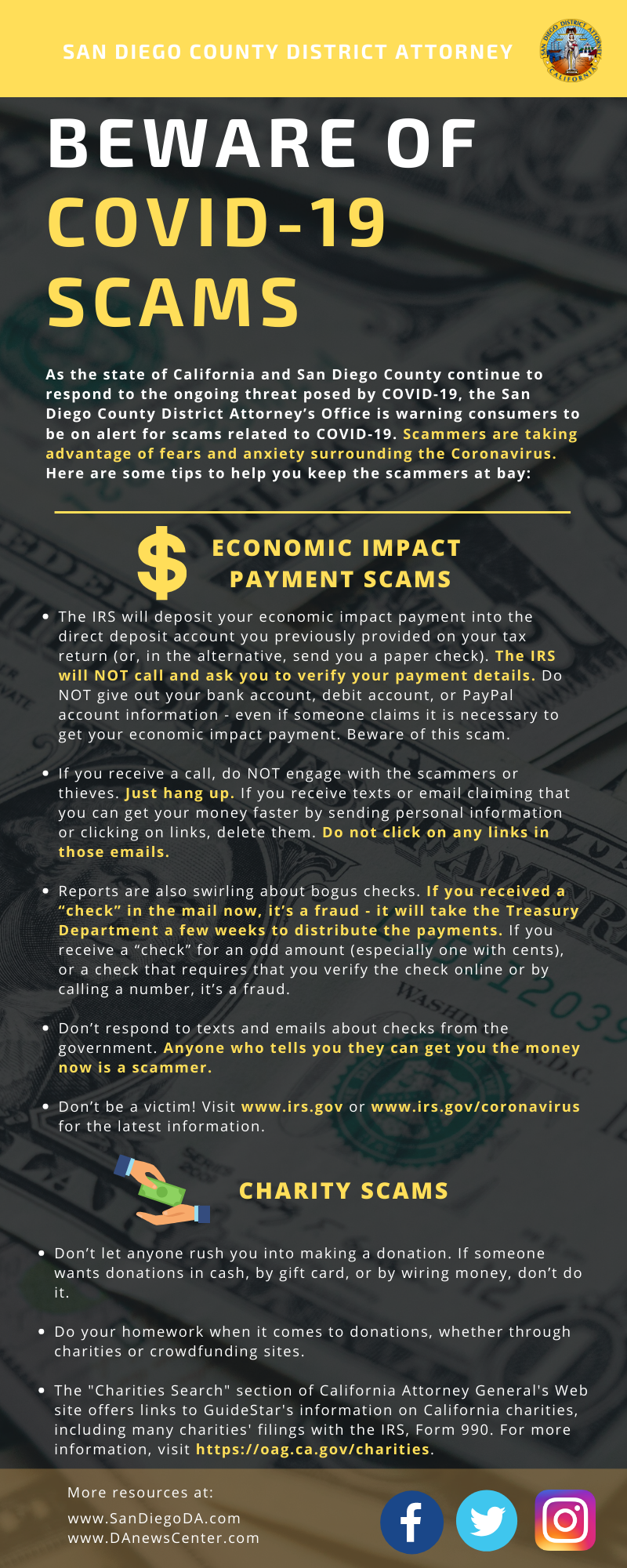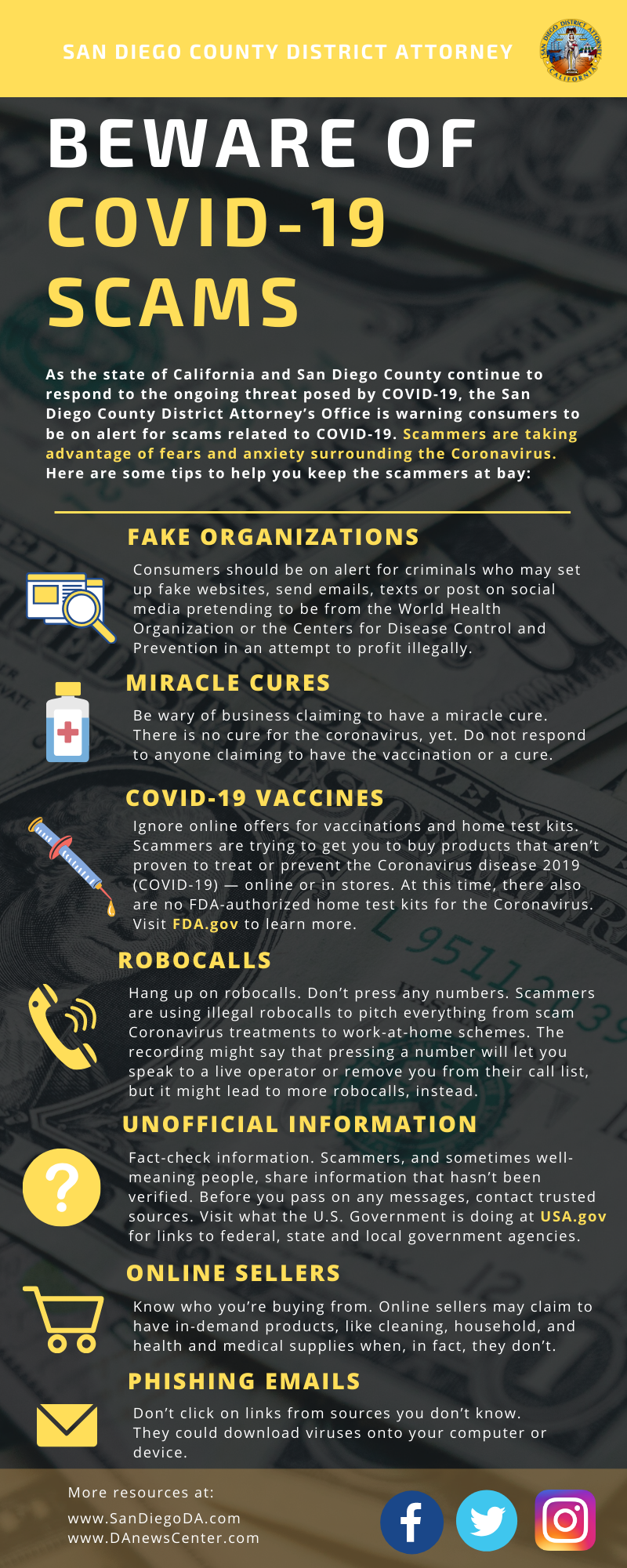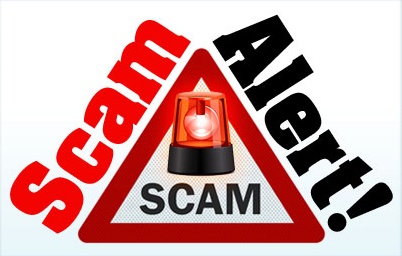Beware of COVID-19 Economic Impact Payment Scams
The Internal Revenue Service (IRS) will begin to distribute COVID-19 Economic Impact Payments in a matter of weeks. For most Americans, this will be a direct deposit into your bank account. For the unbanked, elderly or other groups that have traditionally received tax refunds via paper check, they will receive their economic impact payment in this manner as well.
Unfortunately, criminals and scammers are taking this unprecedented pandemic as an opportunity to exploit the public, which is why the San Diego County District Attorney joins the IRS in warning the public to be vigilant of scams that are attempting to steal your personal information and your money.
Scammers may try to get you to sign over your check to them. Scammers may use this as an opportunity to get you to “verify” you filing information in order to receive your money, using your personal information to file false tax returns in an identity theft scheme. [TWEET THIS]

BEWARE OF THESE SCAMS AND SCHEMES:
-The IRS will deposit your economic impact payment into the direct deposit account you previously provided on your tax return (or, in the alternative, send you a paper check). The IRS will not call and ask you to verify your payment details. Do not give out your bank account, debit account, or PayPal account information – even if someone claims it is necessary to get your economic impact payment. Beware of this scam.
-If you receive a call, do not engage with the scammers or thieves. Just hang up. If you receive texts or email claiming that you can get your money faster by sending personal information or clicking on links, delete them. Do not click on any links in those emails.
-Reports are also swirling about bogus checks. If you received a “check” in the mail now, it’s a fraud – it will take the Treasury Department a few weeks to distribute the payments. If you receive a “check” for an odd amount (especially one with cents), or a check that requires that you verify the check online or by calling a number, it’s a fraud.
IRS-Impersonation Telephone Scams:
An aggressive and sophisticated phone scam targeting taxpayers, including recent immigrants has been making the rounds through the county. Callers claim to be employees of the IRS, but are not. Victims are told they owe money to the IRS and it must be paid promptly through a pre-loaded debit card or wire transfer. If the victim refuses to cooperate, they are then threatened with arrest, deportation or suspension of a business or driver’s license. Or, victims may be told they have a refund due to try to trick them into sharing private information.
With COVID-19 scams they may urge you to pay this fake “debt” with your economic impact check. For those who receive an actual check, they may ask you to endorse it and forward to them for “payment of past debts.”
REMEMBER: Scammers change tactics — variations of the IRS impersonation scam continue year-round and they tend to peak when scammers find prime opportunities to strike — like a new economic impact check being sent. [TWEET THIS]

Email, Phishing and Malware Schemes:
Scam emails are designed to trick taxpayers into thinking these are official communications from the IRS, tax industry professionals or tax software companies. These phishing emails ask taxpayers about a wide range of topics — related to refunds, filing status, ordering transcripts and verifying PIN information — in order to steal your personal information or file false tax returns.
When people click on links from these phishing emails, they are taken to sites designed to imitate an official-looking website, such as IRS.gov. The sites may also carry malware, which can infect people’s computers to steal their files or record their keystrokes.
Also be aware of email phishing scams that appear to be from the IRS and include a link to a bogus web site intended to mirror the official IRS web site. These emails contain the direction “you are to update your IRS e-file immediately.” The emails mention USA.gov and IRSgov (without a dot between IRS” and “gov”). Don’t get scammed. These emails are not from the IRS.
Don’t be a victim! Visit www.irs.gov or www.irs.gov/coronavirus for the latest information.



